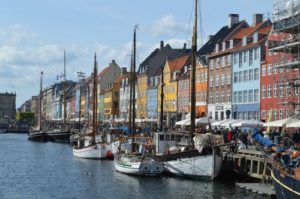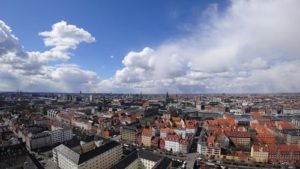How Do I Research Copenhagen, Denmark?
Hello everyone! Welcome back to another blog post about Danish genealogy! I hope this information is useful for you and that you have Danish ancestry right now. If not, just bare with me because I will jump back and forth between Norway, Sweden, and Denmark after I lay down the Danish genealogy basics. My goal this year is to focus on one country for three months at a time to lay the foundation. Then I will dive deeper into each of these countries to give you more valuable information. Deal? Great! Let’s do it!
Researching Cities vs. Researching Rural

There are many similarities to researching these two areas. There are a lot of differences as well. I will be focusing on the differences in this post just to save us all time.
Copenhagen is a major city with it’s own way of recording it’s people. Yes, the city still has to create census and church records; however, it emphasized different details that the rural areas do not.
Cities don’t have to worry about farms. Therefore, you will find no farm names for your city ancestors. So don’t even bother looking for that. Instead, your ancestors were known by their street address.
You will find on census records that they were organized by street address and not by farm name. When you are looking at original census records start with their street address.
Don’t know their street address? You need to find it among other records such as city directories, tax records, police censuses, and civil registration documents. You may also find it while doing your regular research. Danish online research is getting easier for the major genealogy websites such as FamilySearch.org and Ancestry.com. Therefore, you may already have a census record that has your ancestor’s street address just by doing a general search on these websites.
Copenhagen Research with Census Records

I recommend going to the Danish National Archives to find original Copenhagen census records. It’s super easy to the census lists, scroll down to Denmark Statistics and find the census year or years, then type in their street address. This will take you to the original scanned documents and you can do a page by page search for their house and family.
Copenhagen Research with Church Records
Copenhagen was such a huge city, that the authorities organized it into parish districts. A certain number of streets will be under one parish. On church records, the people will be recorded with their parish names and it may or may not include their street address. Therefore, you must know what parish your ancestor’s street address falls under in order to find their church records.
Sometimes, church records are organized by the church building or the religion and not under the parish name. If your ancestor was born at St. Paul’s Church, then there will likely be church books for that church building. Also, some people were born or died at the city hospitals. Those will likely fall under the parish that the hospital is located in instead of having a separate church book for that.
Again, it’s easiest to search for these records at the Danish National Archives. You need to go to the Parish Registers, click on church books from all over the country, scroll down to Copenhagen City, then find the parish name, and you’re in to the original records.
City Research Doesn’t have to be Overwhelming

Don’t worry if this seems super overwhelming right now! You CAN do this! Again, just take it one step at a time and don’t let your brain tell you to think about the whole picture right now. Just be aware that searching for your ancestors in cities will be different than searching for them in the country. If you need more help with this topic, then go to Copenhagen City in the FamilySearch Wiki to learn more strategies. Trust me, you will have more questions the further you go on your journey.
If you need more help, then just ask me anything and I’ll see if I can answer it. Who knows, I may have gone down that part of the journey already and can tell you how to navigate it.
As always, good luck and happy hunting!
Tiffany
P.S. To learn more about Denmark genealogy, check out my other blog posts starting with Danish Towns of Origin and going from there. Enjoy!
city research, Copenhagen City, Danish National Archives, Denmark
